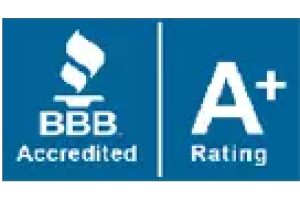Trial Lawyers
Trade Secret Misappropriation
Loftus & Eisenberg, Ltd., is experienced in ensuring that our clients trade secrets and confidential information is protected from misappropriation.
Both federal and state law protect trade secrets. The federal “Defend Trade Secrets Act” enhances the protection afforded by the Illinois Trade Secrets Act, primarily because it guarantees access in the federal courts with the option of an ex-parte process to recover a misappropriated trade secret.
The Illinois Trade Secrets Act
The Illinois Trade Secrets Act (“ITSA”), 765 ILCS 1065/1 et seq., is a variation of the Uniform Trade Secrets Act.
Establishing a Claim under the ITSA
To prevail on a claim under the ITSA, a plaintiff must prove that the defendant (1) misappropriated; (2) the plaintiff’s trade secret; and (3) used that trade secret in the defendant’s business.
Trade Secret
The Illinois Trade Secrets Act defines a trade secret as information that both: Includes the following: technical or non-technical data; a formula; a pattern; a compilation; a program; a device; a method; a technique; a drawing; a process; financial data; or a list of actual or potential customers or suppliers.
It must be sufficiently secret to derive actual or potential economic value from: not being generally known to those who can obtain economic value from its disclosure or use; and is the subject of reasonable efforts to maintain its secrecy or confidentiality.
(765 Ill. Comp. Stat. Ann. 1065/2(d) (2010).)
To determine whether information is a trade secret, Illinois courts continue to evaluate the following common law factors:
- The extent to which it is known by employees and others involved in the business.
- The ease or difficulty for others to properly acquire or duplicate the information
- The measures taken by the business to guard the secrecy of the information.
- The extent to which the information is known outside of the business.
- The amount of effort or money expended by the business in developing the information.
- The value of the information to the business and its competitors.
Misappropriation
The ITSA defines “misappropriation” as the acquisition of a trade secret of a person by another person who knows or has reason to know that the trade secret was acquired by improper means; or disclosure or use of a trade secret of a person without express or implied consent by another person who:
- used improper means to acquire knowledge of the trade secret; or
- at the time of disclosure or use, knew or had reason to know that knowledge of the trade secret was:
- derived from or through a person who utilized improper means to acquire it;
- acquired under circumstances giving rise to a duty to maintain its secrecy or limit its use; or
- derived from or through a person who owed a duty to the person seeking relief to maintain its secrecy or limit its use; or
- before a material change of position, knew or had reason to know that it was a trade secret and that knowledge of it had been acquired by accident or mistake.
Unlike with restrictive covenants, trade secrets are not subject to time or territorial restrictions on the duty to protect trade secrets. In other words, as long as a business maintains the secrecy of its trade secrets, the ITSA protects them from misappropriation.
Statute of Limitations
The ITSA has a five-year statute of limitations, while the UTSA is limited to a three-year statute of limitations (765 Ill. Comp. Stat. Ann. 1065/7 (2010); UTSA § 6).
Damages and Attorney Fees
Damages can include the amount Defendant benefited by the misappropriation or how much profits the Plaintiff lost as a result.
Damages need not be calculated to a mathematical certainty nor must there be specific proof of the actual amount of the loss, however there must be a reasonable basis for the computation.
Section 4(b) of the ITSA provides for punitive damages in an amount equal to double the actual damages where the misappropriation is “willful and malicious” but only if the Plaintiff proves that the defendant’s misappropriation was both malicious and willful.
Section 5 of the ITSA also provides the court with the power to award attorney’s fees to the plaintiff if there is “willful and malicious misappropriation,” or to the defendant if the plaintiff’s claim was made in “bad faith.”
Loftus & Eisenberg represents parties on both sides of trade secrets disputes. Our attorneys have over fifty years’ experience litigating trademark disputes in federal courts nationwide.
















